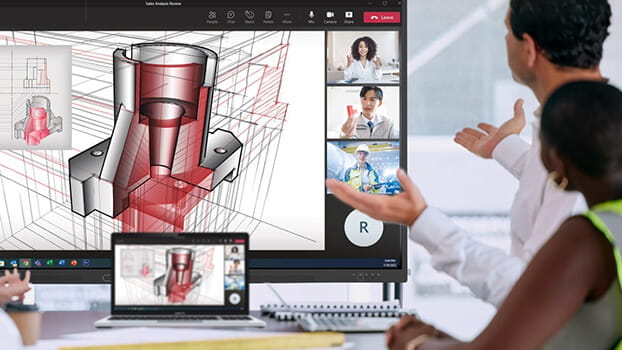While lots of employers say they are still dedicated to providing remote and hybrid-working models for their staff, others are turning away from the habits we had to adopt during the pandemic in favour of more in-person days at the office.
The arguments in favour of return to office (RTO) mandates usually amount to more time for collaboration, more time for in-person connection with colleagues and more access to upskilling initiatives. There has been lots of talk about how employers can still provide opportunities for remote and hybrid workers to experience the camaraderie that their in-office colleagues do. Now it’s time to talk about upskilling.
“There can be – but ideally there shouldn’t be,” says Jeff Lowe when we ask him whether he believes there is a noticeable difference between the kinds of upskilling schemes employees have access to based on whether they are in the office full-time or not. As EVP of SMART Technologies, Lowe is obviously an advocate for video-based remote upskilling programmes. While he may have a vested interest in promoting software tools over in-person learning, what he has to say about the duty employers have towards their remote and hybrid staff is worth listening to.
Employees deserve inclusive and accessible opportunities, regardless of location.
“Hybrid or remote work does provide challenges, so it’s important to provide inclusive opportunities that are accessible regardless of where employers are,” he says, addressing the RTO enforcers. “This is all about priorities, policies and culture as it relates to approaching training and upskilling. Ultimately, whether there is a noticeable difference in upskilling opportunities between office-based and remote employees will depend on the specific practices and priorities of the organisation. It is increasingly important for companies to ensure that all employees, regardless of their work arrangement, have access to the tools and resources they need to develop their skills and advance their careers.”
Keep reading about SMART’s experience with upskilling their workforce:




